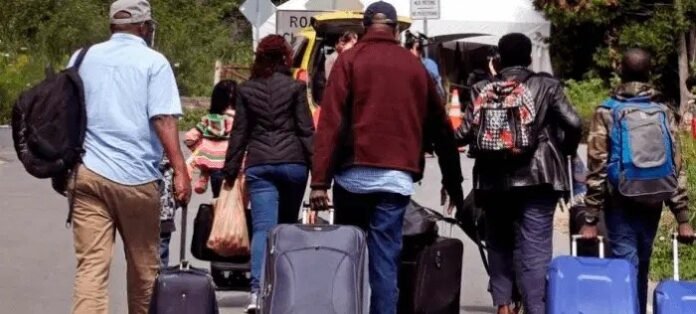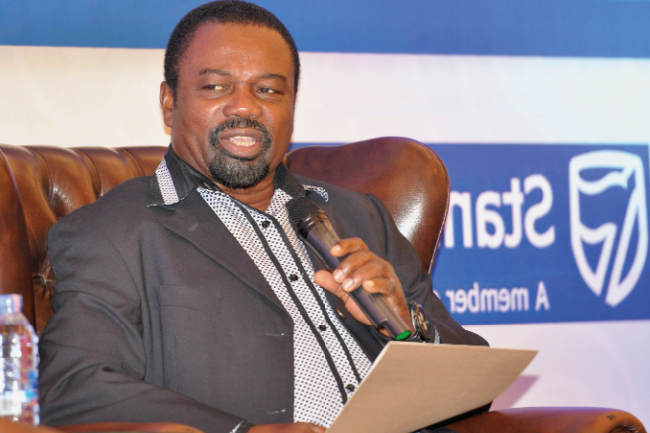The ongoing Ghana-US deportee deal has become a subject of heated national debate, with international relations experts and legal practitioners raising serious concerns about its implications for the country’s sovereignty and human rights obligations.
Dr. Vladimir Antwi-Danso, an international relations expert, cast doubt on the purely humanitarian nature of the agreement.
Speaking on the matter, he stressed that no diplomatic deal of this magnitude could be finalized without Ghana receiving something in return.
“Again, let me make it clear that it is never true that in such diplomatic relations, you will go on humanitarian grounds and get nothing. Even on humanitarian grounds, there is something promised.
“There is no way any relationship is made on the grounds of one side winning and the other side losing, so there must be some promise given to us by the Americans before we accepted to bring them here. We couldn’t have taken them without any promise given to us.”
Dr. Vladimir Antwi-Danso
Last week, President John Dramani Mahama disclosed that 14 West African deportees were flown into Ghana under a bilateral agreement with the United States government.
This revelation came at a time when US President Donald Trump’s administration continues to enforce strict immigration policies, leading to record-level deportations of migrants living illegally in the US.

Accordingly, Dr. Antwi-Danso raised concerns about the decision to deal directly with Ghana rather than engaging the Economic Community of West African States (ECOWAS).
He questioned why the United States’ immigration challenges were being handled solely by Ghana instead of being addressed through a broader regional agreement, emphasizing the need for clarity on Ghana’s role in the arrangement and who would bear the financial responsibility for managing the deportees.
His comments reflect growing unease over Ghana’s increasing involvement in handling foreign detainees, with many wondering if the country has assumed obligations that could strain its resources and international reputation.
Gov’t Urged To Seek Parliamentary Approval For US Deportee Deal
Meanwhile, Acting Director-General of the National Road Safety Authority (NRSA), Abraham Amaliba, called on the government to immediately submit its controversial deportation agreement with the United States to Parliament for ratification, in compliance with constitutional requirements.
Amaliba stressed that although he personally finds the Supreme Court’s interpretation, which mandates such agreements to be laid before Parliament, problematic, the government must respect the ruling as it represents the current legal position.

He noted that the Supreme Court had previously ruled that all forms of international agreements, including Memoranda of Understanding (MoUs), must be presented to Parliament, even if they are mere correspondences with no binding legal intent.
“Anytime I’m doing politics and law comes in, politics takes a back seat. No matter how bad the law is, it is still the law. I think that it is compelling for the government to do just that.
“I agree that the ruling by the Supreme Court, which lumps matters that are just correspondences together and says they must be sent to Parliament, may seem problematic, but I can’t say anything contrary. That is the law for now.”
Abraham Amaliba
Amaliba’s call for parliamentary approval comes as legal and political tensions surrounding the deportation deal continue to escalate.

Several legal experts and opposition members have drawn parallels to Ghana’s Guantanamo Bay detainee controversy in 2016, when the Supreme Court ruled that the government had acted unconstitutionally by failing to seek Parliament’s approval before agreeing to host former detainees.
Critics argue that the current deportation deal bears striking similarities, especially since it involves receiving foreign nationals into the country under US arrangements without prior legislative oversight.
They contend that allowing such agreements to bypass Parliament could weaken Ghana’s checks and balances system, eroding the constitutional role of lawmakers in safeguarding national interests.
READ ALSO: European Commission Proposes 19th Sanctions Package Against Russia


















